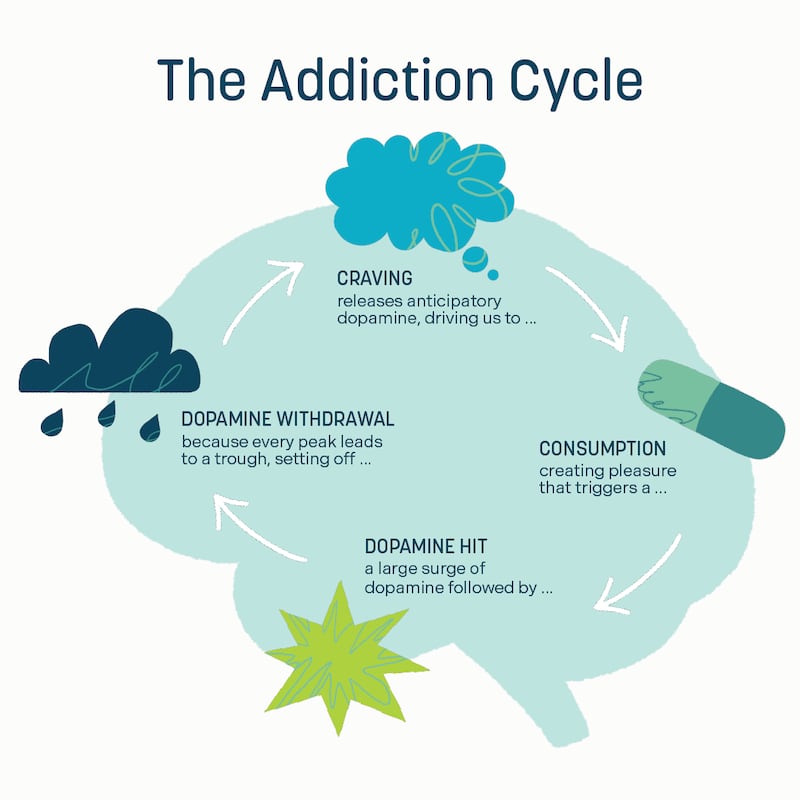The National Institute on Drug Abuse calls the brain “the most complex organ in the body.” While the brain weighs a mere three pounds, it holds the key to action and thought and regulates the body’s basic functions. “In short, your brain is you — everything you think and feel and who you are,” the institute declares in its article on the science of addiction.
But sometimes, who you were would be more accurate. Addictions can change the brain. And while there are many kinds of addictions — not just drugs, alcohol and tobacco, for instance, but also gambling and pornography and more — the specific pathway on which substances work is clear: They go after the brain’s reward path.
Classified as a brain disease, addiction affects pleasure circuits, flooding them with dopamine and creating a chronic cycle of dependency. This cycle makes pleasure harder to achieve over time, requiring more of the addictive substance.
Yale Medicine asserts that overcoming addiction involves more than just exerting willpower; medication, especially for opioid use disorder, and counseling are key to treatment.
Addiction affects brain areas beyond pleasure, impairing judgment, decision-making, learning and memory, and making certain behaviors ingrained. These changes transform substance use into a habitual, reflex-driven disorder.



